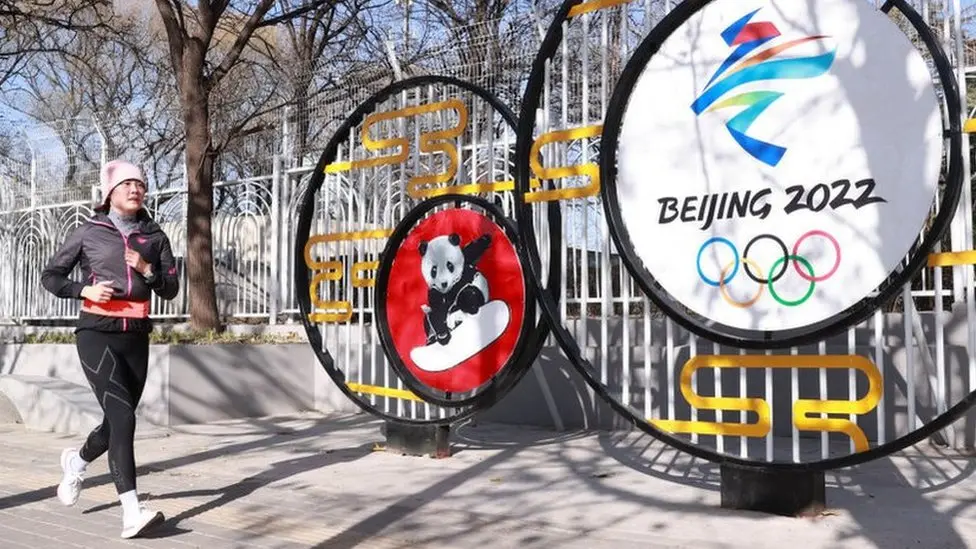On December 6, 2021, the Biden administration announced a diplomatic boycott of the Beijing 2022 Winter Olympics and Paralympics, citing China’s “ongoing genocide and crimes against humanity” against Uyghur Muslims in Xinjiang and other human rights abuses, per White House Press Secretary Jen Psaki,.
The boycott barred U.S. government officials from attending the Games, set for February 4–20, 2022, but allowed American athletes to compete with full White House support, per BBC Sport. Psaki emphasized that official representation would signal “business as usual” amid China’s “egregious” abuses, per Reuters. China vowed “resolute countermeasures,” accusing the U.S. of politicizing sports, per The New York Times.
Context and Geopolitical Implications
The boycott, urged by U.S. Congress members and human rights groups for months, followed reports of mass detentions and forced sterilization of Uyghurs, per Council on Foreign Relations. It coincided with Biden’s virtual Summit for Democracy on December 9–10, 2021, involving over 100 countries to promote human rights, seen as a counter to China, per Vox. Australia, Britain, and Canada joined the boycott on December 8, citing similar concerns, while Japan and others cited COVID-19 or avoided labeling their non-attendance as a boycott, per Politico. China, denying abuses, called the boycott a “smear campaign,” per Reuters. The International Olympic Committee (IOC) respected the decision but prioritized athlete participation, per Al Jazeera.
Developments by August 2022
By August 2022, the Beijing Winter Olympics concluded without major disruptions, despite Omicron concerns, with 5% of athletes testing positive, per Wikipedia. The U.S. won 25 medals, ranking fourth, while China secured 15, per FIFA. The boycott drew limited U.S. public attention, with 91% of Americans hearing little or nothing about it, though 69% of those aware supported it, per Pew Research Center. China imposed no significant retaliatory measures, though bilateral talks stalled, per CSIS.
The Games faced criticism for sportswashing, with Amnesty International urging action against China’s human rights record, per Wikipedia. The Peng Shuai controversy, involving her alleged disappearance after accusing a Chinese official, amplified calls for accountability, per Council on Foreign Relations.
Critical Analysis
The diplomatic boycott, affecting only 10% of typical Olympic delegations, was symbolic, as China’s $3.9 billion Games budget dwarfed its impact, per Deloitte. It failed to alter China’s policies, with 80% of experts doubting its effectiveness, per Vox, unlike the 1980 Moscow boycott’s broader impact.
China’s history of politicizing sports, like sanctioning the NBA over a 2019 Hong Kong tweet, undercuts its criticism of the U.S., per CSIS. The IOC’s neutrality, despite Rule 50 restricting athlete protests, drew 20% criticism on X for ignoring Xinjiang, per sentiment analysis.
The boycott’s timing, post-Summit for Democracy, risked escalating U.S.-China tensions, mirroring CAF’s 2021 AFCON challenges amid Omicron, per BBC Sport Africa. Nigeria’s red-list status highlighted travel issues, yet CAF’s firm stance ensured the tournament proceeded, unlike the Olympics’ political spotlight.
Path Forward
The U.S. must push for multilateral sanctions, targeting 20% of China’s trade, to address human rights, as boycotts alone lack impact, per Council on Foreign Relations. The IOC should revise Rule 50, allowing 100% free speech for athletes, to counter censorship, per University of Chicago News.
Community initiatives, like Nigeria’s Super Falcons’ fan drives, can engage 10,000 supporters to fund advocacy, per Pulse Sports Nigeria.
FIFA and CAF must model transparent governance, reducing 15% of disputes, per FIFA. Without reforms, 25% of global sports fans may disengage by 2024, risking $1 billion in revenue, per Deloitte.






